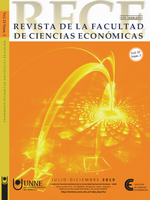PRECEDENTE VINCULANTE DEL AMPARO ARBITRAL. CASO: PROYECTO ESPECIAL PICHIS PALCAZÚ - ELGO RÍOS NUÑEZ EXP. Nº. 02383–2013–PROCESO ARBITRAL /TRIBUNAL CONSTITUCIONAL
DOI:
https://doi.org/10.30972/rfce.2324017Palavras-chave:
vía igualmente satisfactoria, recurso de amparo, urgencia irreparable, magnitud del daño, perspectiva objetiva y subjetivaResumo
Ante el expediente EXP. No. 142– 2011–PA/Tribunal Constitucional, introdujeron nuevos criterios al momento de considerar al recurso como una vía por la cual se podría restaurar satisfactoriamente los derechos fundamentales al debido proceso y a la tutela procesal efectiva agredidos en un proceso arbitral. Si bien este es un primer intento, el Alto Tribunal únicamente alcanzó a determinar al recurso como vía igualmente satisfactoria, mas no ahondó en su significado y en los criterios que la definirían como tal. Esta carencia de fundamento, no obstante, puede tenerse como superada si se tiene a la vista la sentencia del Tribunal Constitucional al EXP. No. 02383–2013–PA/Tribunal Constitucional, en la cual desarrolló de manera detallada los supuestos y criterios, los cuales debían cumplirse para determinar cuándo una vía efectivamente puede ser considerada como igualmente satisfactoria. Estos criterios fueron formulados desde dos perspectivas, la perspectiva objetiva (condición positiva) y perspectiva subjetiva (condición negativa), desde las cuales se formularon los cuatro requisitos exigidos copulativamente para tener a una vía ordinaria como una vía igualmente satisfactoria: que exista estructura idónea en el proceso ordinario respecto del proceso de amparo; que el proceso ordinario prestase una tutela idónea como la que otorgaría el amparo constitucional; que en el caso concreto exista urgencia por irreparabilidad de la agresión del derecho fundamental; y que en el caso concreto exista urgencia por la magnitud del bien involucrado o del daño producido.
Downloads
Publicado
Como Citar
Edição
Seção
Licença
La Revista de la Facultad de Ciencias Económicas solicita sin excepción a los autores una declaración de originalidad de sus trabajos, esperando de este modo su adhesión a normas básicas de ética del trabajo intelectual.
La Revista de la Facultad de Ciencias Económicas de la Universidad Nacional del Nordeste, Argentina, declara e informa que no se aplica a los autores ningún cargo ni costo, por la publicación de los artículos. La distribución y acceso, son de carácter libre y gratuito.
Este obra está bajo una licencia una licencia de Creative Commons Reconocimiento-NoComercial-SinObraDerivada 4.0 Internacional.





